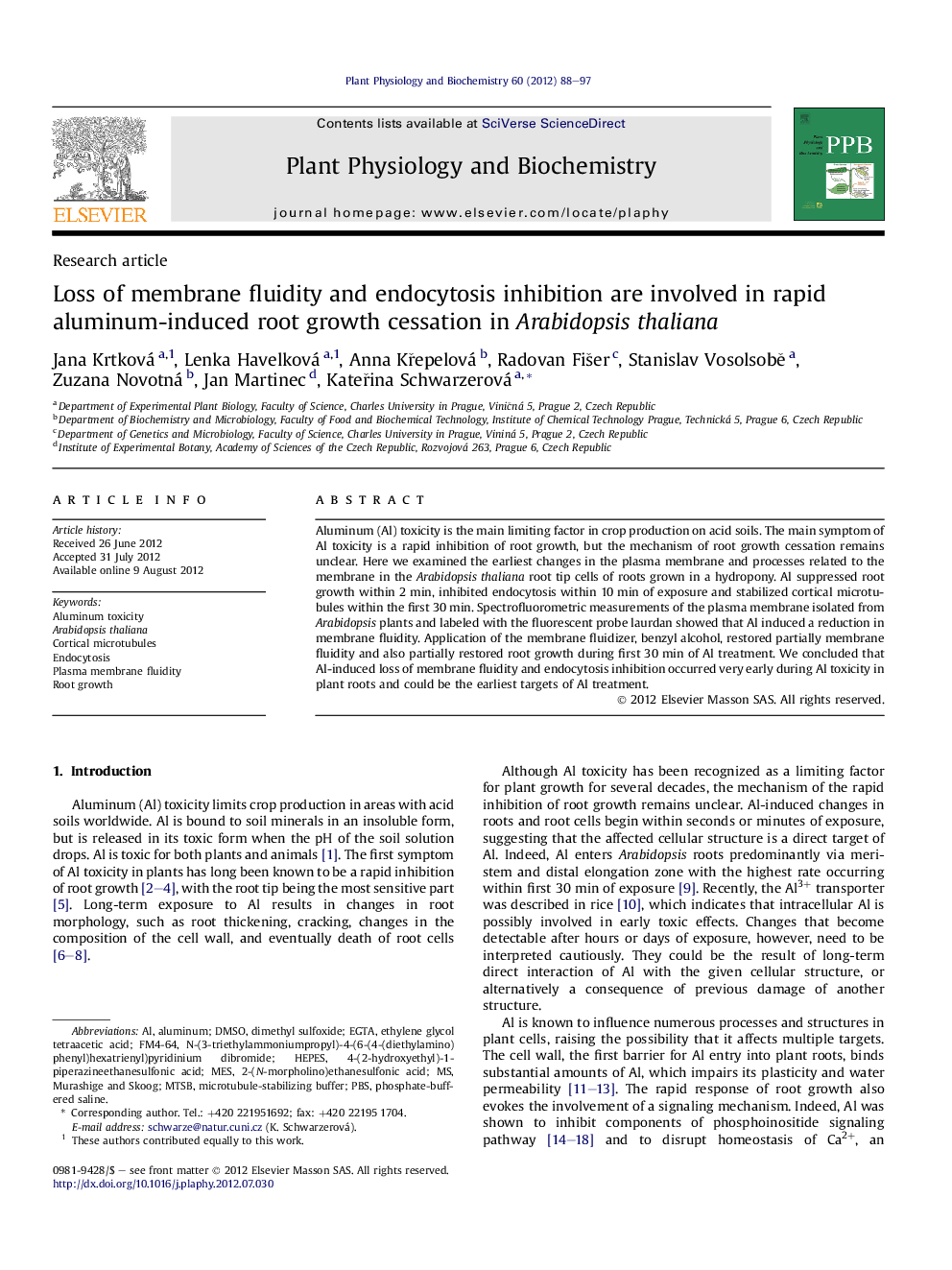| Article ID | Journal | Published Year | Pages | File Type |
|---|---|---|---|---|
| 2016130 | Plant Physiology and Biochemistry | 2012 | 10 Pages |
Aluminum (Al) toxicity is the main limiting factor in crop production on acid soils. The main symptom of Al toxicity is a rapid inhibition of root growth, but the mechanism of root growth cessation remains unclear. Here we examined the earliest changes in the plasma membrane and processes related to the membrane in the Arabidopsis thaliana root tip cells of roots grown in a hydropony. Al suppressed root growth within 2 min, inhibited endocytosis within 10 min of exposure and stabilized cortical microtubules within the first 30 min. Spectrofluorometric measurements of the plasma membrane isolated from Arabidopsis plants and labeled with the fluorescent probe laurdan showed that Al induced a reduction in membrane fluidity. Application of the membrane fluidizer, benzyl alcohol, restored partially membrane fluidity and also partially restored root growth during first 30 min of Al treatment. We concluded that Al-induced loss of membrane fluidity and endocytosis inhibition occurred very early during Al toxicity in plant roots and could be the earliest targets of Al treatment.
► Root growth inhibition occurred after 2 min of Al-treatment in Arabidopsis. ► Al-induced root growth cessation was partially ameliorated by membrane fluidization. ► Al increased the rigidity of isolated Arabidopsis plasma membranes in vitro. ► Al inhibited endocytosis in Arabidopsis root cells. ► Al stabilized cortical microtubules in Arabidopsis root cells.
